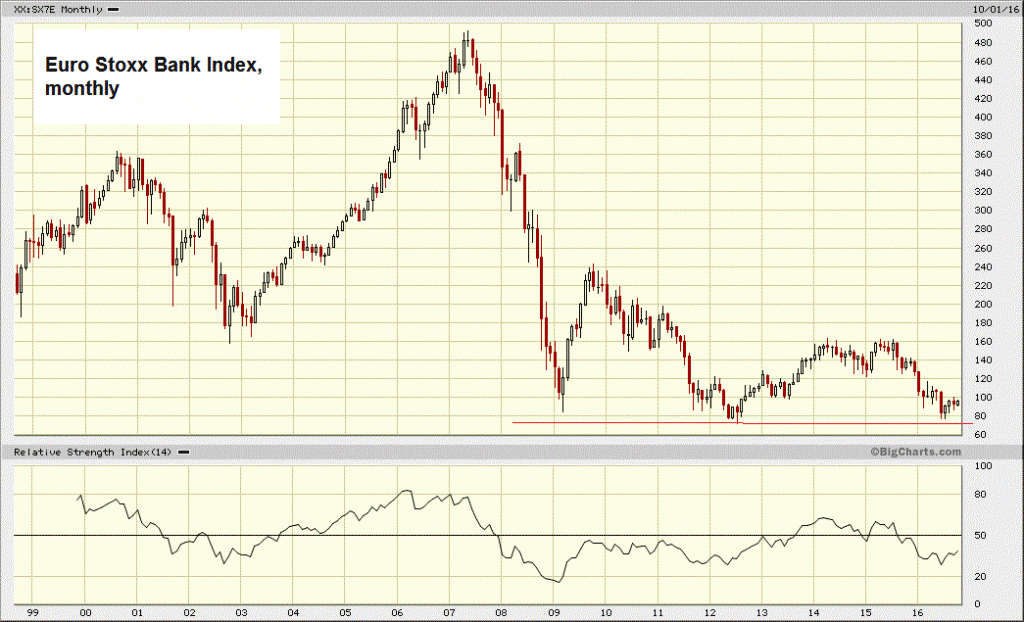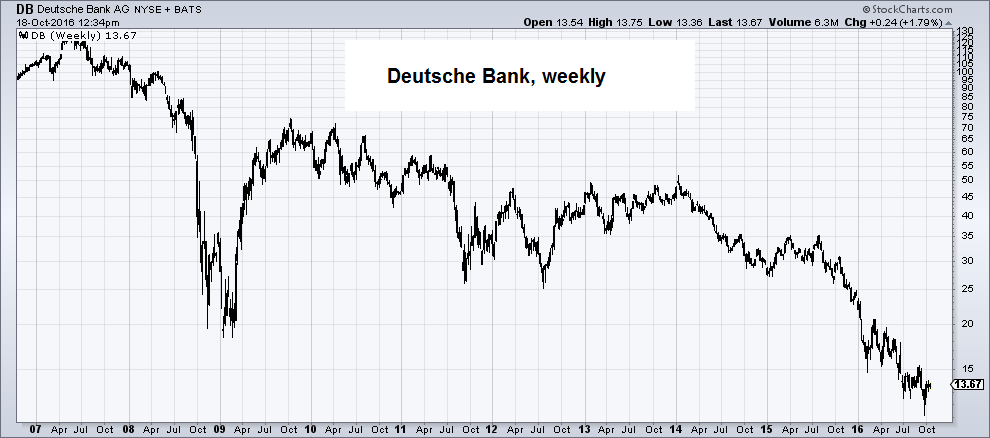Andy Duncan Interviews Claudio Grass Andy Duncan of FinLingo.com has interviewed our friend Claudio Grass, managing director of Global Gold in Switzerland. Below is a transcript excerpting the main parts of the first section of the interview on the problems in the European banking system and what measures might be taken if push were to come to shove. Andy Duncan of FinLingo.com (left) and Claudio Grass of Global Gold (right) - Click to enlarge Andy Duncan: How do you see the current situation in banking particularly in Europe? Claudio Grass: One interesting indicator is that today in certain countries not bankers are making the highest average salaries any longer , they have been replaced with government servants. Overall I would say it is bad, but that was predictable. The system and the assumptions the whole sector is operating under are just not sustainable, and printing money out of thin air does not create wealth; on the contrary, it is destroying capital. All state interventions have backfired and current monetary policy with low / negative interest rates is putting insupportable pressure on the banks. Bad actors have been allowed to get away with reckless and catastrophic positions for too long.
Topics:
Pater Tenebrarum considers the following as important: Andy Duncan, Claudio Grass, Debt and the Fallacies of Paper Money, Deutsche Bank, Featured, newsletter, On Economy
This could be interesting, too:
investrends.ch writes Bloomberg: DWS stoppt Private-Credit-Geschäft in Asien
investrends.ch writes Deutsche Bank bleibt auf Rekordkurs
investrends.ch writes DWS mit neuem Vertriebsleiter für Institutionelle
investrends.ch writes Deutsche Bank mit Gewinnsprung – Aktie steigt
Andy Duncan Interviews Claudio GrassAndy Duncan of FinLingo.com has interviewed our friend Claudio Grass, managing director of Global Gold in Switzerland. Below is a transcript excerpting the main parts of the first section of the interview on the problems in the European banking system and what measures might be taken if push were to come to shove. |
 Andy Duncan of FinLingo.com (left) and Claudio Grass of Global Gold (right) - Click to enlarge |
| Andy Duncan: How do you see the current situation in banking particularly in Europe?
Claudio Grass: One interesting indicator is that today in certain countries not bankers are making the highest average salaries any longer , they have been replaced with government servants. Overall I would say it is bad, but that was predictable. The system and the assumptions the whole sector is operating under are just not sustainable, and printing money out of thin air does not create wealth; on the contrary, it is destroying capital. All state interventions have backfired and current monetary policy with low / negative interest rates is putting insupportable pressure on the banks. Bad actors have been allowed to get away with reckless and catastrophic positions for too long. The history of bailouts has sent the message that such actions don’t really have consequences, and therefore my understanding is that moral hazard and risk linked to it have increased. Andy Duncan: Do you think we ever actually got out of the 2008 crisis or do you think that this money printing and quantitative easing over the last eight years has just been keeping that crisis on ice? And is what we are seeing now just tis crisis trying to reemerge again? Claudio Grass: The mainstream narrative is that the sluggish growth we have seen over the last year’s is part of the recovery process, and it’s only because of unexpected events such as the refugee crisis, Brexit, tensions with Russia and so on. So these are the excuses that the economy has been so anemic, and in my view this is a poor excuse for a failing system. The problems are structural, and all of the states’ effort to patch them up are in vain. Therefore QE and low rates are the economic equivalent of an artificial coma; they didn’t fix any of the problems of 2008, they simply postponed the inevitable hoping for a miracle. […] |
Euro Stoxx Banks(see more posts on Euro Stoxx bank index, ) |
| Andy Duncan: Deutsche Bank in Germany has been in the news most recently, and they do look to be in serious trouble. There have been lots of graphs in newspapers showing a similar share price movement in Deutsche Bank as compared to Lehman Brothers 8 years ago. Now Deutsche Bank have this massive 14 billion dollar fine from the US regulators, and Chancellor Merkel said she is not going to bail them out. If Deutsche Bank did go bankrupt, do you think that central banks would then just bail them out anyway?
Claudio Grass: You heard the same message from the Italian banks. Both countries’ governments have indeed made it clear in public that there is no chance of state aid and bailouts. However, since the problems keep getting worse, and the toxic infection in the banking system is becoming a real issue, I would not be surprised if they reverse their position and go ahead with more bailouts. I really believe they are trapped. If they let a bank like DB go under, a lot of savers will suffer a serious hit; if they bail out it will be at the expense of tax payers. Letting it fail would be the sound choice, but both are politically problematic and at the end of the day, it will always be a political decision. Claudio Grass: The mainstream narrative is that the sluggish growth we have seen over the last year’s is part of the recovery process, and it’s only because of unexpected events such as the refugee crisis, Brexit, tensions with Russia and so on. So these are the excuses that the economy has been so anemic, and in my view this is a poor excuse for a failing system. The problems are structural, and all of the states’ effort to patch them up are in vain. Therefore QE and low rates are the economic equivalent of an artificial coma; they didn’t fix any of the problems of 2008, they simply postponed the inevitable hoping for a miracle. |
Deutsche Bank Weekly(see more posts on Deutsche Bank, ) |
| Andy Duncan: [….] I would imagine that they will get bailed out but won’t this cause Chancellor Merkel all sorts of political problems with the Italians because they have been told that their banks cannot be bailed out. To your point, isn’t a political decision to bail out DB just going to create a huge political problem between Italy and Germany?
Claudio Grass: I really believe they will always come up with a political solution. If they are going to support Deutsche Bank, then basically they would also have to support the Italian banks. That’s the way it has been in the past. I think they will stick to the same mechanisms in the future. Andy Duncan: What do you think this will do to a currency like the euro then if the ECB just prints a huge trillion dollar fest of euro notes to bail all these different banks out, particularly in Spain and Italy, as well as in Germany? What do you think this will do to currencies: will the central banks around the world get together to manage that situation? Claudio Grass: Most people don’t understand money. However, it becomes obvious that more and more people feel uncomfortable when they hear about trillions of currency injected into the financial system. People are increasingly asking themselves where this money is coming from, and the explanation they hear is that central banks can create this out of thin air. I always underline that if we were do the same on a private basis we would go to jail. So overall a lot of people have realized that we are in a harsh currency war for years already, and that everything goes on until it stops. So the question is how much more can they print in euros before the euro itself is going down to its intrinsic value of zero? We can see so many cracks within the euro zone that it is only question of time when exactly it will break up. I might be that the euro is going to fail before the euro zone breaks apart as a political construct. Therefore I will not rule out another euro crisis in the near future. |
Andy Duncan interviews Claudio Grass (continues from transcript at 7:56)Fin Tales, Ep. 002: Claudio Grass – Perfect Black Swan Storm |
The following topics are discussed over the remainder of the interview (the recording continues from transcript at 7:56):
- Could a break-up of the euro zone actually bring down the EU as well as have terrible repercussions for the banking system?
- As an Austrian economist what should be done in this situation: should the whole of banking system just be allowed to find its own feet or or should the chips should just fall where they will?
- How to protect from rapidly depreciating currencies? Hint: part of the answer is owning physical gold and silver, stored outside the banking system, ideally in safe and internationally diversified jurisdictions.
- What is it like to work as a Mises ambassador?
- We have seen different hedge funds pulling their money out of Deutsche Bank. What activity have you seen at Global Gold, in the gold market: are more people piling into gold recently?
- We have got this circle of black swans flying all around the world at the moment, trying to land. When do you think that the big crisis is going to come? Or can you not predict that? Could it be tomorrow, in two years or in five years time
Charts by bigcharts, stockcharts
Acting Man is an affiliate of Global Gold, a Swiss bullion depository (here is our landing page at Global Gold, where you will find additional information about the service).


